The RPG Scrollbars: A Quest For Heroes
Richard Cobbett on May 18th, 2015 at 5:00 pm.
Heroism is at the core of most fantasy stories, but there’s a difference between being a hero and simply a weapon to be pointed at the world’s biggest threat. When heroes happily loot peasants’ houses and murder their way through problems, do they really deserve their title?
If there’s any developer duo that should know a thing about heroes, it’s Lori and Corey Cole, creators of one of my favourite adventure series of all time – Quest for Glory. (The fourth especially is high on my list of best adventures ever,
not least for its villain). In addition to those, they ran a dedicated School for Heroes for a while, and are currently working on the spiritual successor to the original games,
Hero-U: Rogue to Redemption – currently in a second Kickstarter after the scope moved from a relatively simple Roguelike on a basic engine into a full-on new adventure. I spoke to them about the complex characters in their games, offering real heroism, and returning to crowdfunding.
RPS: So, heroism. It’s core to the genre, but so often it’s rarely on display. The main reason I wanted to speak to you guys specifically is because Quest For Glory is one of my main touchstones for games where you’re ACTUALLY a hero – and of course, began as “Hero’s Quest” rather than anything to do with gold and glory.
Corey: Yeah, the name change was completely wrong and inappropriate, but we didn’t have a choice. We had to change it to something! But Hero’s Quest is the actual game.
RPS: So was heroism rather than simply adventure part of the DNA from the start?
Lori: When we started out, it was wanting to get into games after playing things like Ultima that touched on this concept, of how to be a Paladin, an Avatar, and so on. It had so much potential, but when we actually played it… where was that?
Corey: I think in particular she’s thinking of Ultima IV, where of course you start with the gypsy fortune teller and moral questions that determine your stats and class. We said yeah, that’s great storytelling… but then the rest of the name is just “Name? Job? Bye?” There’s some story…
Lori: …but it was so disappointing, because that beginning gave us this idea we could have this grand adventure. We got into games to give that grand adventure we thought games needed to have.
RPS: Yeah, I was going to bring up Ultima, simply because it amuses me that if you look at the series’ story, the Avatar is the worst thing to happen to Britannia. His quest creates the Guardian, destroys the Gargoyles’ realm, and while he’s meant to be a figure to look up and emulate, all that actually happens is that everyone waits for him to sort their problems. And that’s before we get to the killing and stealing and so on. It always felt an interesting counterpoint to QFG, which tends to adopt more of a focus on saving the world through compassion, one act of kindness at a time. I’ve not really seen that in other RPGs.
Corey: Well, beside getting a swollen head, I think I have to talk about context. We get a lot of people talking about lore in our games and inconsistencies. Richard Garriott, when he wrote Alkalabeth, he was only about 15. We all played a lot of D&D, but when we broke into the industry at Sierra, we were in our early 30s. We had a lot more life experience to draw from… and we probably played a lot more D&D! If there’s a bit more mature feeling to them, it’s probably because we were a bit more mature while making them. Everything we brought to QFG was things we’d encountered in our lives. My favourite example, which I’ve told a hundred times, is the seed-spitting Spirea in the first game, based on a kinetic fountain that we saw in Phoenix, Arizona. A lot of the other stuff came from mythology and other readings, and having a child… it all gave us a different perspective on this.
RPS: So how would you go about defining heroism?
Corey: To me, heroism is… I think of what I call quiet heroes. A hero is anyone who goes out of his or her way to do something good, usually helping people, in a way that costs them something. If they get a reward afterwards, that’s fine, but they don’t do it for that. A hero is someone who says… here is something that needs to be done, and I’m the one to do it.
Lori: In effect, Hero’s Quest was an exploration of what it means to be a hero and to sacrifice. Throughout the series you go from a wannabe thinking he’s going to save the kingdom and find this lost child, and each time you think you know what you’re supposed to be doing and the reality turns out to be very different.
Corey: The world is not that simple. It’s also good storytelling to put in plot twists, but the reality is that the world is a messy place. You think you’re going to rescue the princess and-
RPS: …you discover she’s the brigand leader.
Corey: Spoilers! But yeah. You find that she’s your foe. You still rescue her, but it’s not like she’s this helpless damsel. You just have to bring her back to her senses.
RPS: Heh. I thought you just threw a Dispel potion in her face?
Lori: Well, that was a simple way of doing it!
Corey: It’s a shortcut for having a really drawn out philosophical conversation…
RPS: The series had a fairly solid base for ongoing games, with the move between seasons and compass points between games. Was the growth of the hero’s perception of what heroism is part of the plan from early on?
Lori: We had the plot in place, from being a wannabe to being a true ruler, yes. And I wanted that character to be your avatar – no name but the one you give them, no dialogue but what you hear in your head.
RPS: I’ve always been surprised by how much scope the series has – there is and isn’t a defining character. It’s all second-person, it’s ‘you’, but there’s still a sense of growth – that by QFG IV you’re finally grown up as a hero. It’s that ability to walk into a town where nobody knows you, and knowing you can make it better. That always struck me as fascinating – QFG2 raising the stages, QFG3 almost being the Kobayashi Maru with its war plot.
Corey: The answer is yes. It was both planned and a lucky coincidence-
Lori: Well, I don’t know about that.
Corey: Brilliant storytelling!
Lori: Well, yes. We started every game with the question of what message we wanted, and each had a core concept it fed off to. In III for instance, set in African Fricana, you’re the stranger in a strange land – the only white guy who has to learn and understand cultures and become part of them. Then in IV we give you a paranoid society and you have to teach people there’s still hope.
Corey: In a sense, our Paladin is our ultimate hero character. You have to work up to it, but we wanted to get away from… well, for starters, the historical paladins have nothing to do with D&D our ours. But we started with the idea of the embodiment of both law and good. We said, forget that bit. We wanted our paladin to be the ultimate good, who will break the law if that needs to be done. We have that played out for instance with a thief in QFGIII. He’s an absolute outcast, it’s forbidden to even talk to him, but your character can decide it’s more important to help him than to obey customs.
Lori: So when making the player make moral decisions based on things like following rules and consequences, those questions of what makes a hero are always being asked.
RPS: Part of what always impressed me is the compassion the series always had towards not only the usual victims, but its villains. Aside from a handful of literal demons, there aren’t really that many villains at all in the series.
Corey: Yes. At the end of QFG2 there’s Ad Avis, who is definitely a villain, but at the same time is kind of a tragic figure. We worked out his backstory and he’s-
Lori: He’s not truly a tragic figure…
Corey: No, not truly, but he went out and wanted power, and he’s very much a misogynist who signs up with the Dark Master only to discover that she’s a woman, who completely dominates him.
Lori: So he comes by his misogyny… rightly, I guess?
RPS: But there’s an obvious contrast there with the Dark Master herself, Katrina, who is presented as being dark and evil… and she can be a bit of a sociopath at times… but then you find that really she’s just lonely and would probably have been fine if she’d just been able to join a book group. Even by the end, she knows what she’s DOING, but is still somewhat oblivious to its effect – thinking she can control the forces of darkness. Lots of villains have pulled the ‘we could have been friends’ thing, but with her… yeah. I love the sheer sense of betrayal she has after the hero is manipulated into trying to kill her – that jump from being basically harmless to “You want a villain? FINE! Here’s your damn villain!”
Corey: Yeah, Katrina
does have a tragic story.
Lori: Every character, no matter how minor, has a story they’re telling. Whether or not the game reveals it, I write these characters knowing where they’re coming from.
Corey: I actually wanted to get into something with that. You think about fantasy, and the heroes are the fighters and mages and so on. But starting with our definition, that the hero is someone who goes out of his way, one of the big heroes you meet in the first game is the Centaur Farmer. When you get his backstory, you find that he’s the only one who stood up against the brigands invading the town, and he took his rake and his hoe and he fought them off and got seriously injured. The brigand leader then stopped that and took him to the local healer, so that showed a sympathetic side to her, but also important was the fact that this ordinary guy was a hero.
This ties into something that happened during our current Hero-U Kickstarter. One of our biggest backers is a huge fan, to the extent that he bought a piece of land and has been terraforming it to be Erana’s Peace – he wants to make it that magical garden. He was livid when he found that we’d added a garden to Hero-U as a stretch goal – he said it was essential. We thought it was a minor little thing, but we started to think about it, and thought that we were likely one of the few heroic fantasies where there are these quiet places. The idea that you go there and you’re safe… in Quest for Glory, we have this character Erana who was a powerful mage, but instead of using her power to rain down fire on her enemies, she used it to make these places of peace and safety. It’s again that idea of quiet heroism – to create something rather than simply destroy enemies.
RPS: When it comes to the classes though, the Thief does rather stand out as a problem…
Lori: That’s what makes the Thief/Rogue an interesting character. He’s walking the tightrope, and the basic premise of our new game is the choice of how far to cross the line into being a villain rather than a hero. Which side does he want to be on?
Corey: We had an interesting situation when starting the series. Our original project leader just resigned. He was a very religious person and he said he would not work on a game where you could be a thief.
Lori: The question we’re always asking though is what
is a hero, and you have to allow the player to explore the possibilities to let them answer that.
Corey: In QFG2, any class can become a Paladin. That includes the Thief. But the Thief has by far the hardest road, with the temptations put in your way… In Hero-U, you’re more of a street-rat. You’re not a thief yet, but you’re trying to become one. Growing up on the streets, he decides he needs a way to take care of his mom, and the Thieves’ Guild offers to take him in.
During the game though, your instructor at Hero-U is also explaining that a Rogue isn’t a thief, but an honourable figure using thief skills. Lock picking because the bad guys lock their doors. Sneaking around in the shadows because they have traps and guards…
RPS: Outside of the games, and long before Hero-U, you ran a website called “The School For Heroes”. What was the idea behind that project?
Lori: We wanted to create a website that kind of mimiced the correspondence course that the hero was using in the first game online. We gave the player a quiz to see what character class their personality fit, like a Myers-Briggs test, to split them between warrior and paladin and rogue and so on. Then they’d get class assignments to do in real life, along the lines of their character class.
Corey: Lori roleplayed all the professors and put up the assignments so people could go in and fill in their real life acts that fit their assignments.
Lori: The warrior for instance needed to come up with a regular regimen, like exercise and healthy eating. The paladin was all about community service and helping people. The wizard was about creativity and art…
RPS: And the Thief?
Corey: Get away with something!
Lori: And we have wonderful stories of real life incidents.
Corey: One of our Thieves pretended to be another character, a Paladin, claimed his e-mail address had changed, and I completely fell for it. He took advantage to impersonate that character for a week before admitting what he’d done, and yep – he got away with it!
RPS: I think one of my favourite lines in QFG 5 is when you finally meet the Famous Adventurer who kicked everything off, and his response to being told all the things you’ve done as a result of his bullshit ‘school’ is “I didn’t think anyone read the crap I write!” Were there any particularly big surprises in players being inspired to do cool stuff?
Corey: I mentioned the guy who made the Ultimate Garden, who also wants to build a castle after being inspired by Quest for Glory and others. One of the greatest things though is that every once in a while we do get a letter from a fan, like one guy who said “I was studying business at school, but realised there were better things I could be doing with my life.” He changed his major, got a medical degree, went to Guatemala and was working as a volunteer there. Another guy went to Haiti to do stuff there. These people said they made medicine and helping people their career because our games inspired them, and we were just… wow? You did that?
Lori: The whole message of heroism really resonates with people. On some level, we all want to be a hero. The game’s whole purpose was to reinforce that – wish fulfilment to be that character, but also the message that doing right is a decision you can always make.
Corey: And a lot of time it just takes a little trigger, an article, a game, a mentor, for people to completely turn around. Most people want to be good people. They just don’t know how.
Lori: One of my favourite fan stories was from the School for Heroes. I was corresponding with this guy who lived in the Ukraine – the Soviet Union when we were writing these games. There was this great demarcation, this line between the communist East and our games had to be pirated to be played there. But people played them over there.
Corey: We’ve had several people from across the Iron Curtain write us to say that things were so horrible, so repressed, so poor, but a pirate copy of Quest for Glory gave them a sense of hope that there could be heroes – that they could stand up and resist authority.
RPS: Hopefully not with a return address of Gulag 12, Siberia… No, I can see it. One of many things I like is that the hero isn’t given anything. He’s not a Chosen One, he’s not given any trust… he just gets involved and has to earn his stripes before things work out. I can see how people would find it inspirational versus many other fantasies.
Lori: We had prophecies, but we never really answered whether you were the only one who could have done it. Someone else could have come along.
Corey: It’s an opportunity, not an inevitability. You’ve got to do it yourself.
RPS: The first one isn’t so much a prophecy as a list of problems. “Comes a hero from the East, free the man from in the beast”… I always felt that if they’d been able to think of a rhyme, they’d have tacked on a few extra opportunistic verses like “A bold hero with keyboard and mouse, also finds time to clean my house.”
Corey: With Hero-U we’re going a step further there. We’ve got disasters that need sorting, like a student going missing and it’s your job to go rescue them… but you’re a rogue, what if you don’t want to? Well, you don’t have to. Two/three days later, they’ll die or someone else will sort it. And then you’re not the great hero any more, but that’s your choice.
RPS: Speaking of choice, it must be good to see so many people coming to and back to the new Kickstarter.
Corey: I feel bad for our fans who supported us because they wanted to do something nice for Lori and me, only to think… oh god,
all we did was put them in debt! But really, the reason we’re in debt from this is that we’ve not had paying jobs for the last two years, and the fact is that if we hadn’t done this, we probably wouldn’t have had them anyway. I can tell you that having 10 bestselling games out there and five bucks will buy you a latte at Starbucks. I tried for five years and couldn’t get work. So, yeah. We’re deeply in the hole, but we’d still be deeply in the hole if not for this Kickstarter. But that’s okay. We’re working our tails off, and I think that’s good. We don’t mind working really hard.
We’re not asking anyone to bail us out, for charity, we went into this knowingly. We could have gotten venture capital, could maybe have found a publisher, but we thought the best route was going back to Kickstarter. Because of the flak we got, I started getting e-mails from people who’ve made adventures with Kickstarter… and they’ve all run out of money. Almost all, anyway.
Really, we just want people to check out the website, the Kickstarter, watch the video, play the demo, and if you like what you see, just click the Share button. I just want to get more eyeballs on it, because my experience is that people who see it like it a lot, and a lot of them will pledge.
RPS: Thank you for your time.
 .
.
 .
.






















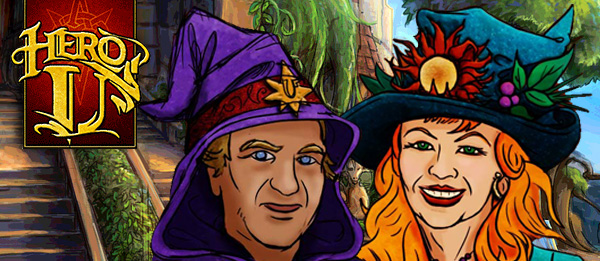
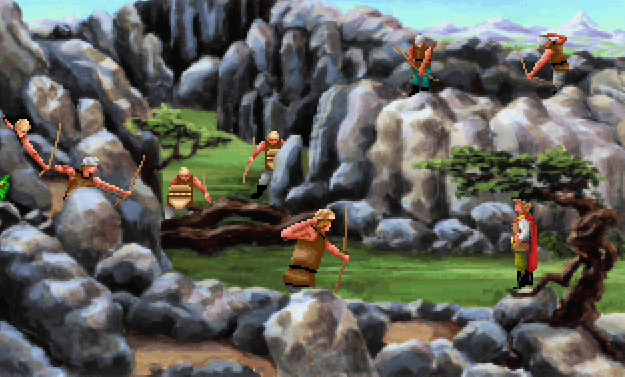
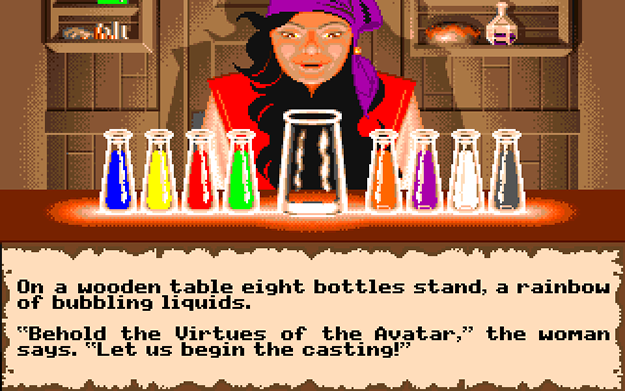
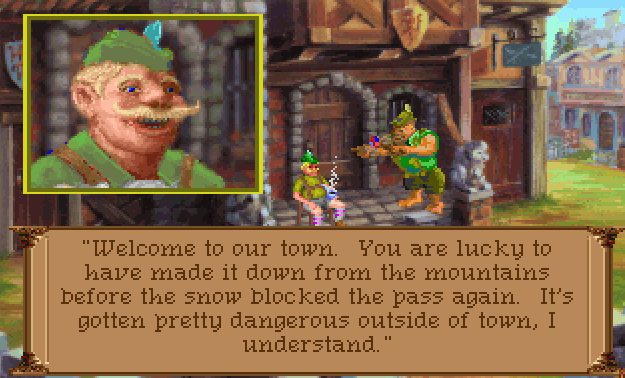
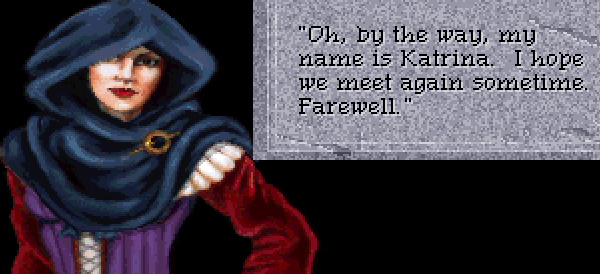
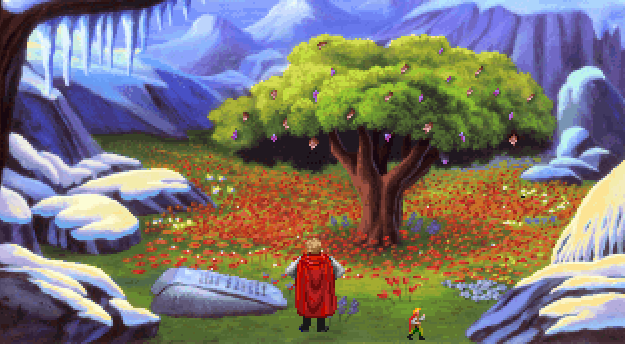
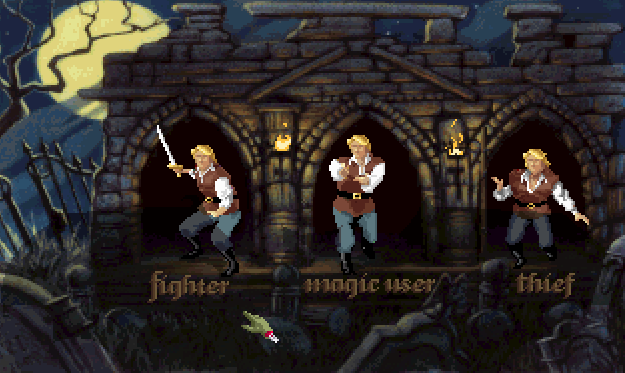
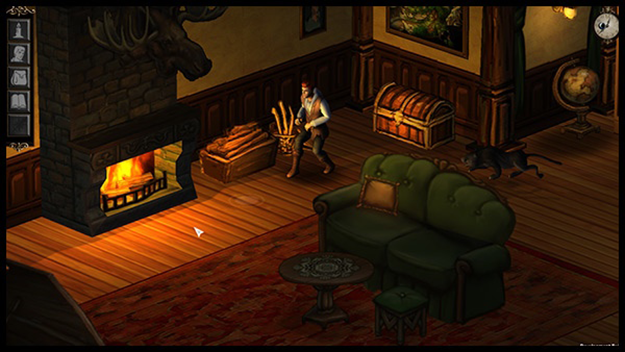





![Have Many Potato [2013] Codex 2013](/forums/smiles/campaign_tags/campaign_potato2013.png)
![The Year of Incline [2014] Codex 2014](/forums/smiles/campaign_tags/campaign_incline2014.png)



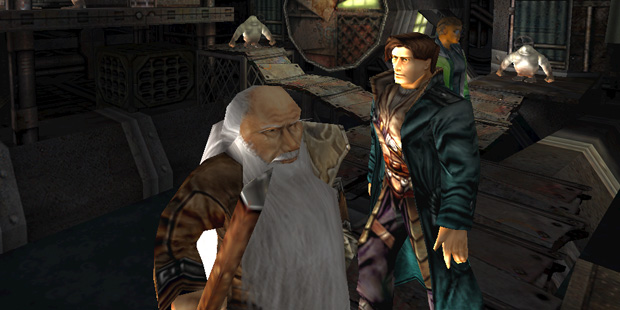
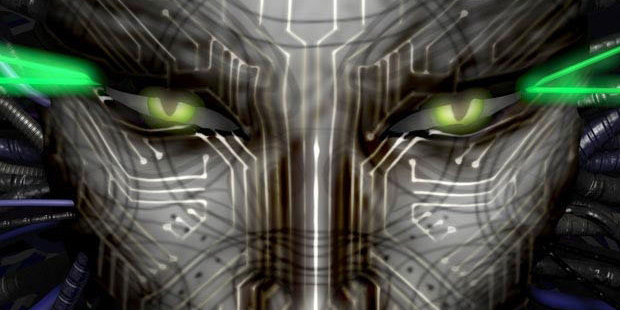
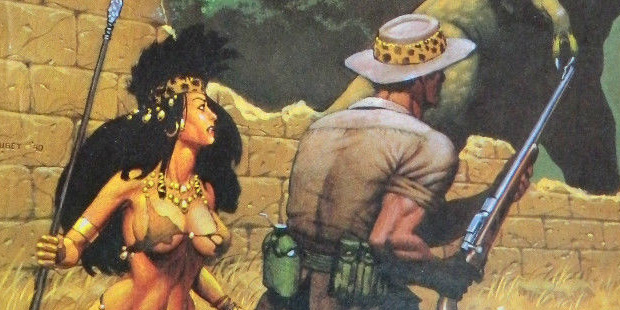
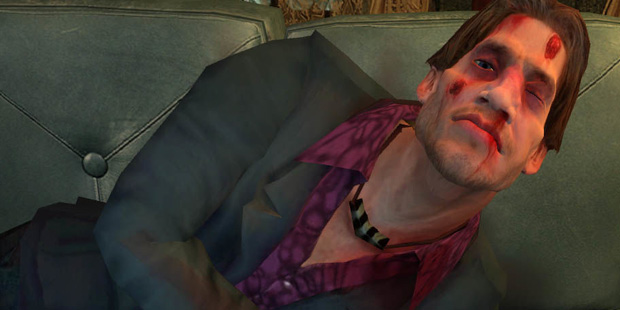
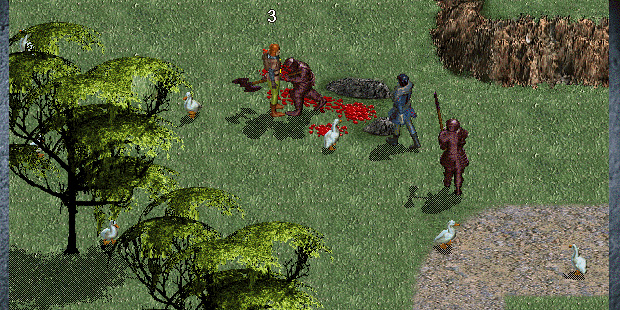
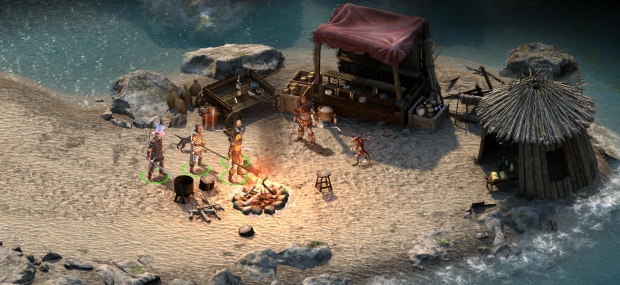
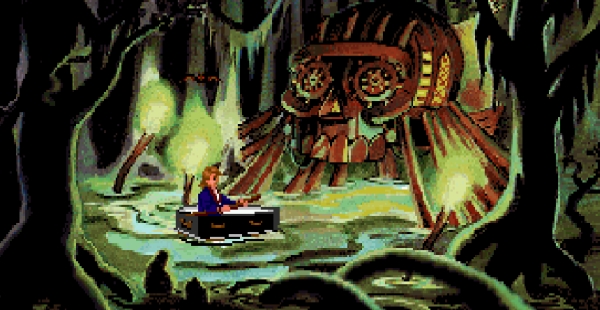
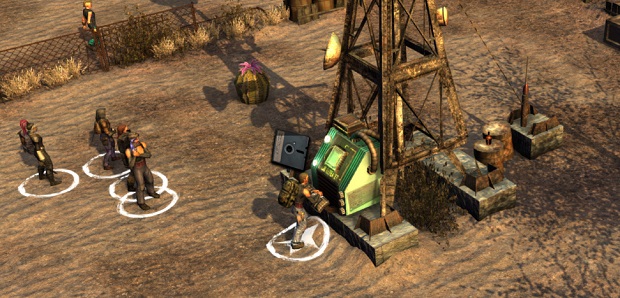
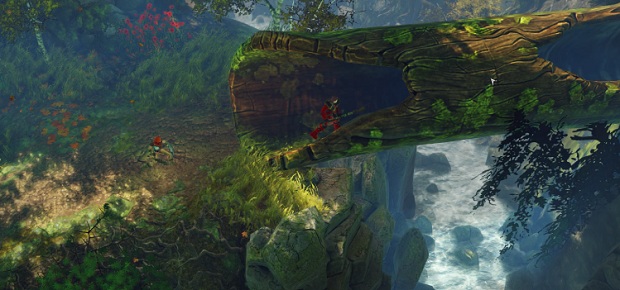
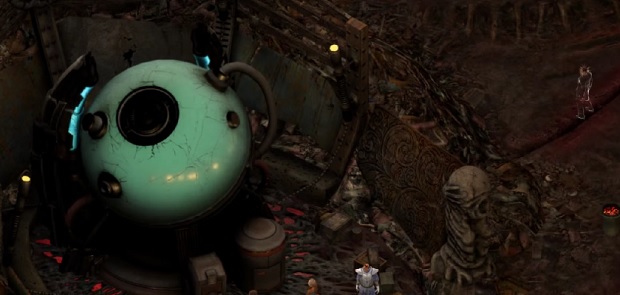
![Glory to Codexia! [2012] Codex 2012](/forums/smiles/campaign_tags/campaign_slushfund2012.png)





